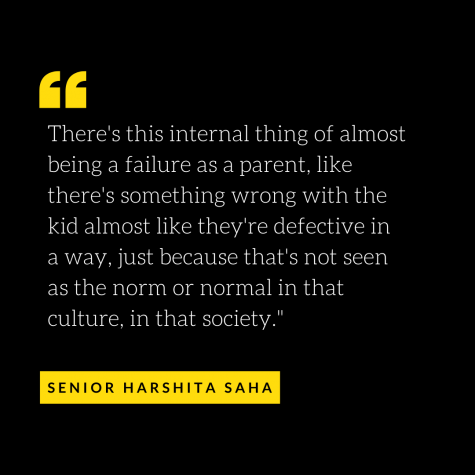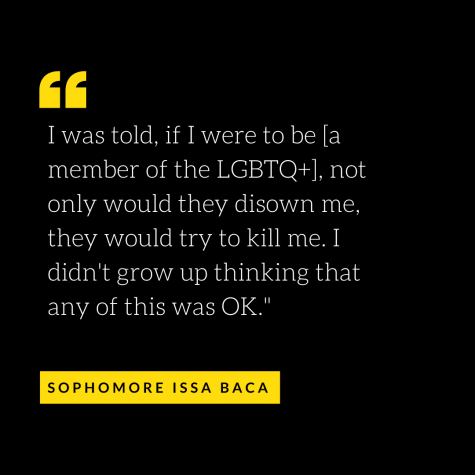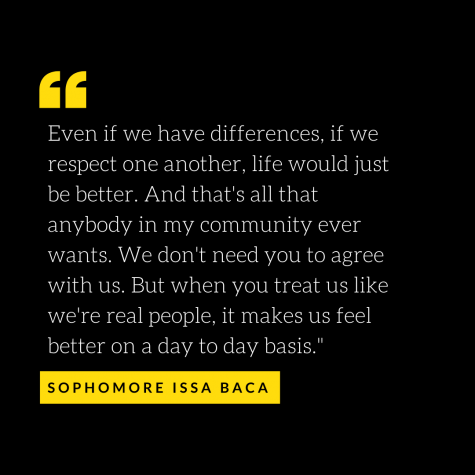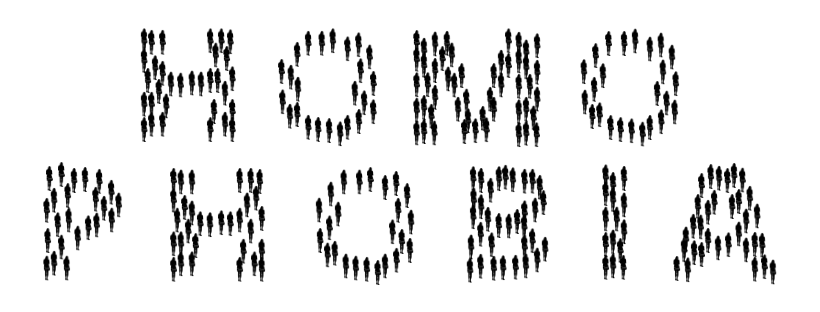Facing internalized homophobia
How MVHS students and teachers deal with internalized homophobia
February 8, 2020
On the first day of school every year, literature teacher Randy Holaday announces that he is gay to his classes. Although Holaday did not come out as gay until he was 24, years after graduating Archbishop Mitty HS, a Roman Catholic high school, he noticed how his classmates were treated differently and excluded from many social gatherings when they came out as gay.
From not being able to purchase prom tickets in a pair for the same gender to having their entire identity changed and having their sexuality attached to their names, Holaday’s classmates had to face the social taboo of coming out as gay in the conservative high school. The negative stigma around homosexuals at his school forced Holaday to subconsciously ignore the idea of coming out.
According to the Rainbow Project, “Internalized homophobia and oppression happens to gay, lesbian and bisexual people, and even heterosexuals, who have learned and been taught that heterosexuality is the norm and ‘correct way to be.’” Holaday believes that one of the dynamics of internalized homophobia stems from the need to fit in.
“If you are gay, then that auto[matically] separates you from the main group,” Holaday said. “And so, wanting to fit in, I think, is a lot about [social gatherings] too. Anything that might ostracize you. I think, at least when I was in high school, I just suppressed it because I wanted to fit in. So I think homophobia comes from that dynamic.”
Senior Harshita Saha experiences this similar taboo from her family. Being raised in a traditional Indian household, Saha finds it hard to come out as bisexual to her parents, and while her friends and the people at school know, her parents continue to be left in the dark. Saha has spoken to her father about the topic before and knows he would not be supportive if he found out Saha was bisexual.

“He’s like, ‘if someone else’s kid is gay, that’s fine as long as it’s not my child,’” Saha said. “There’s this internal thing of almost being a failure as a parent, like there’s something wrong with the kid, almost like they’re defective in a way, just because that’s not seen as the norm or normal in that culture, in that society.”
Sophomore Issa Baca, a bisexual transgender male, has had to face a more intense version of the experience Holaday had felt, as he grew up in a Catholic family that taught him from a young age that being anything but heterosexual or having a gender identity different from one’s biological sex was not okay. With a side of his family completely against his view, Baca had a hard time finding support from people.
“I grew up in a Catholic family who hated who I am now, pretty much to the point where I was told, if I were to be [a member of the LGBTQ+ community], not only would they disown me, they would try to kill me,” Baca said. “As far as that, I didn’t grow up thinking that any of this was OK.”
Getting no respect from others and having hateful comments directed towards him, Baca has had to deal with this hurtful aspect of internalized homophobia, the feeling of always being judged wherever he goes and having to deal with other people’s homophobia and disapproval. However, Baca has learned to put up with this internalized homophobia by receiving therapy and changing his attitude.
“I’ve gotten death threats and a lot of other things that are pretty nasty,” Baca said. “But now I take it with a grain of salt. I don’t really believe it. But before for sure, I just felt like I was doing something wrong and it was an insecurity that I had. With any move, I felt like I was being watched in a negative light. And sometimes I still do that when I go into a new environment, I feel like everybody’s looking at me and thinking, ‘Oh, is that a he or she?’”

However, Baca feels that even though therapy is a way for him to deal with internalized homophobia, it isn’t as helpful as he imagined. While his therapists were helpful people he could confide in and relate to, he believes that they couldn’t exactly emphasize with his pain and the situations that he was put in.
“I know for a fact when I talk to a therapist or something, I know they’re not going to understand,” Baca said. “ Especially being trans, because it’s less than 1% of the population. But when you talk about it, you realize that most people’s problems have some type of insecurity, and insecurities are internalized homophobia. So if you find other people who have similar problems and issues, you realize you’re not so different from each other.”
While Baca received hateful comments from people not in the LGBTQ+ community, Saha says she has experienced internalized homophobia from people within the community as well.
“Sometimes the people you least expect to be prejudiced are prejudiced,” Saha said. “So even in the gay community, especially towards bisexuality, there’s a lot of stigma because I’ve heard comments like, ‘Oh, you can’t make up your mind, you’re just trying to fit in and be cool as a girl because bisexuality in females is kind of like a fetish.’ Even in a relationship, people assume that you’re going to cheat just because you have more options, but just because you’re straight doesn’t mean you’re attracted to every single person of the opposite sex.”
Baca and Saha have had to deal with all these problems at school, and Holaday recognizes that these instances of bullying do occur; however, he has a hard time figuring out the best way for him to tackle this issue.
“I guess my reaction is just making sure that at least here, it is a safe space,” Holaday said. “I know that’s becoming more and more cliche, but making sure they can come here and one, when something happens they have me to talk to and I can tell them that’s not OK, and two, making sure that within my classroom, the class they’re in and other classes too that students are comfortable and don’t feel that pressure from homophobia.”

Through it all, Baca believes that if people just started treating others respect and as actual human beings, the problems of internalized homophobia would go away. He believes that the issue stems from people forgetting that all humans are still people, regardless of their gender or sexuality.
“I might think that people who don’t believe in me are stupid,” Baca said. “I still respect them, I’m not going to treat them like not a human being, even though we are different, and I think that’s the problem nowadays. Even if we have differences, if we respect one another, life would just be better. And that’s all that anybody in my community ever wants. We don’t need you to agree with us. But when you treat us like we’re real people, it makes us feel better on a day to day basis.”

